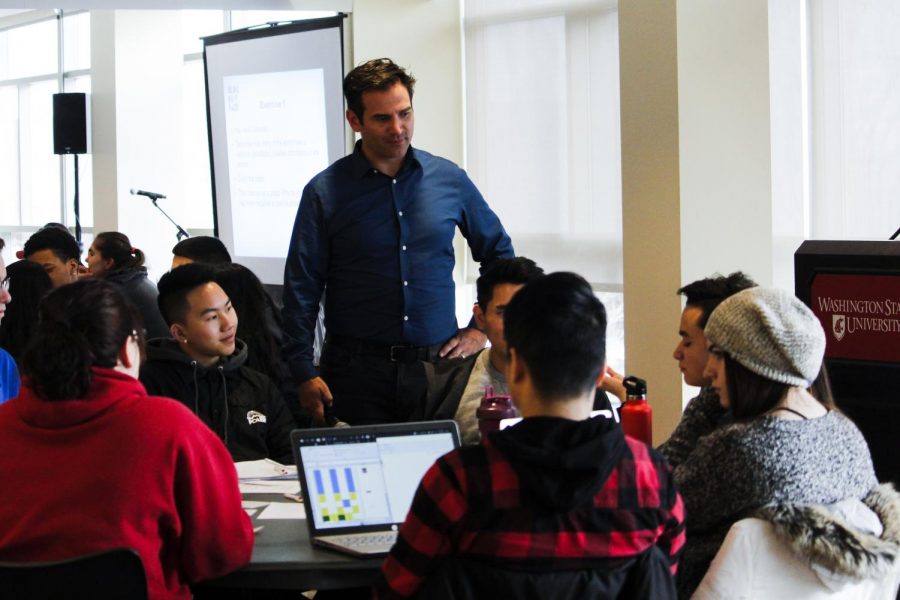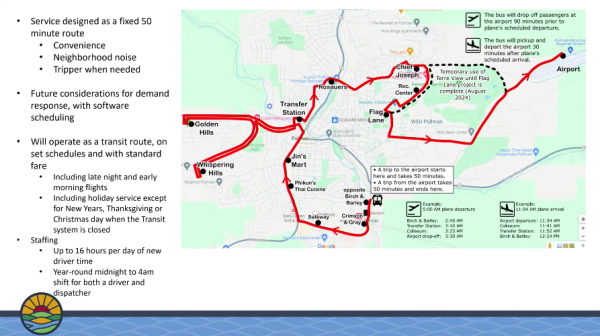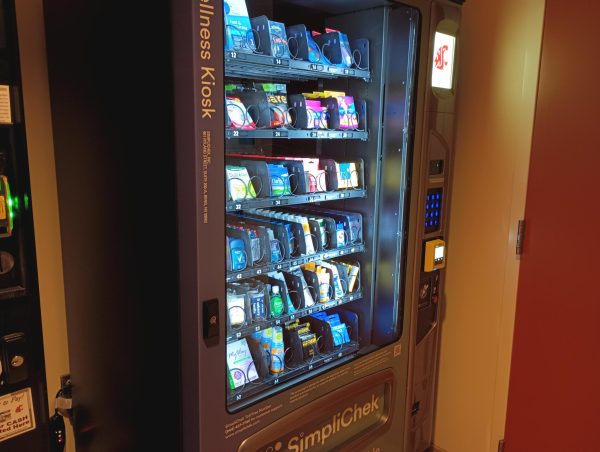Speaker wants to ‘find a solution’
Seminar teaches coping mechanisms, how to deal with stress during school
EUGENE LEE | THE DAILY EVERGREEN
Speaker Ross Szabo discusses negative connotations of mental health and how people cope with stress at the Wellness and Coping Interactive Workshop held Wednesday in the CUB Junior Ballroom.
January 24, 2019
Mental health advocate Ross Szabo educated WSU students on the topic of mental health during a seminar held on campus.
The seminar, titled “Wellness and Coping Strategies for Students,” took place at 2:30 p.m. Wednesday in the CUB Junior Ballroom.
Szabo said we need to change the way we view and teach mental health.
“If we can start teaching mental health the same way we teach physical health from a public health perspective,” he said, “we have a better chance of actually making a difference in someone’s life.”
During the seminar Szabo had students interact with each other in small groups to improve ways to communicate about mental health.
He had them participate in activities like distinguishing the different factors that can contribute to poor mental health and writing down the kinds of coping mechanisms they use to deal with stress.
One of the goals of the seminar was for the students to develop their own personal coping strategies, said Jerry Pastore, associate director of athletics, student-athlete development and wellbeing at WSU.
“I think college is a really good time to have conversations about this because this is the time when you solidify your coping mechanisms,” Szabo said. “A lot of your coping mechanisms form in middle school and high school, and college is when you reinforce them.”
Pastore, who helped facilitate the seminar, has worked with Szabo in the past to use his mental health curriculum in WSU athletics.
“Mental health has to be a fabric of this department and I think we’re moving in that direction for the university as well,” Pastore said.
Szabo said studies show his curriculum facilitates those struggling to seek help, decreases stigma and improves one’s ability to manage their own emotions.
He measures the success of his seminars by the level of engagement shown by the students, Szabo said.
“As long as people are engaged and actually having the conversations they’re supposed to be having at the table,” he said, “it’s a really good measure of their interest in the topic.”
Pastore said he hopes students come away with a new understanding of stress management and a new way to look at mental health.
Junior Angeline Pineda said she attended the seminar for her job at Health Promotion Services but the subject goes hand in hand with her work.






















